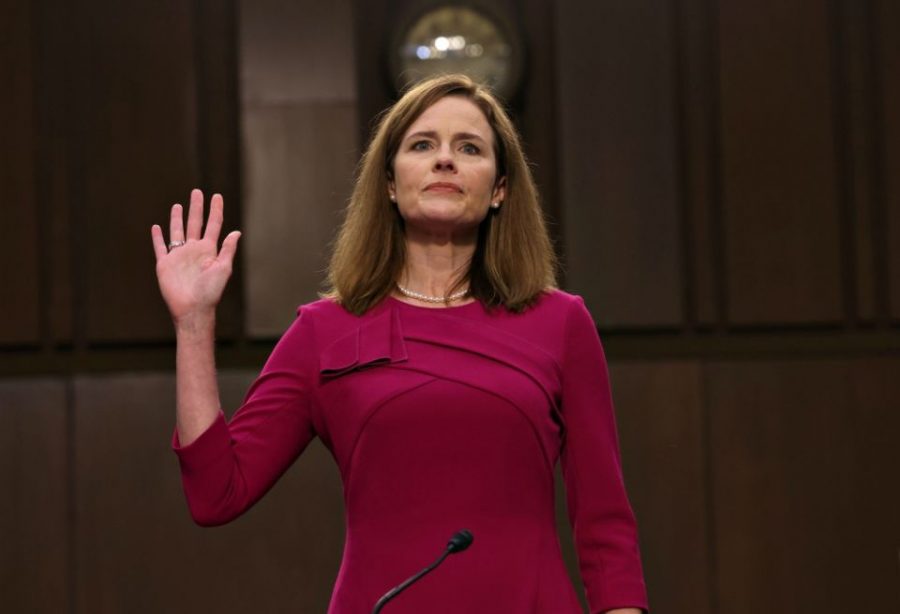The United States Senate appointed Judge Amy Barrett to the Supreme Court one week prior to the Presidential Election. With a unanimous vote of 52-48, every Republican Senator except one voted to confirm her; whereas every member of the Senate Democratic Party voted in opposition. Democrats fear Judge Barrett’s confirmation to the lifelong post will favour Republicans in politically sensitive cases that reach America’s top court for decades to come.
Reality
The mighty constraint many Americans believe to be an abuse of power by President Trump is his nomination of Judge Amy Barrett so close to an election. However, in Article II, Section II, Clause II of the United State’s Constitution, “He [The President] shall have Power, by and with the Advice and Consent of the Senate, to make Treaties, provided two thirds of the Senators present concur; and he shall nominate, and by and with the Advice and Consent of the Senate, shall appoint Ambassadors, other public Ministers and Consuls, Judges of the Supreme Court, and all other Officers of the United States […], The President shall have the Power to fill up all Vacancies that may happen during the Recess of the Senate, by granting Commissions which shall expire at the End of their next Session.” As stated by the very piece of literature that supervises the Federal Government, President Trump’s nomination of Justice Amy Barrett is not unconstitutional, nor has his session expired yet.
According to Justice Sutherland in 1936, “He [The President] alone negotiates. Into the field of negotiation, the Senate cannot intrude; and Congress itself is powerless to invade it.” Nevertheless, if the nominee is lacking in sufficient character and expertise, the Senate can reject the appointee as it deems appropriate.
“I think that Amy Barrett is an excellent appointment to the Supreme Court,” AP Government and Economics teacher Joe Merrett said. “First, her judicial philosophy is one of judicial restraint. This means that she interprets the law as it is written in the constitution. This type of philosophy is typically more conservative. The appointment of Amy Barrett also gives the court a 6-3 makeup in favor of judicial restraint or conservative mindset.”
Religion
Most Critics of Amy Coney Barrett bring up her views on faith and politics. Commentator Bryan Dawson posted on Twitter that, “BREAKING: Al Qaeda & ISIS just issued a statement saying their end goal is to end separation of church and state & build a ‘Kingdom of God’ in the United States […]. Oh, my bad, that was Amy Coney Barrett, the judge at the top of Trump’s list to replace Ruth Bader Ginsburg.” The attitude of this post reflects the accusations that Supreme Justice Barrett wishes to end the separation between church and state. In other words, let people’s beliefs guide their decisions in federal cases.
Nonetheless, during her Committee Hearing on the Judiciary in 2017, Justice Amy Barrett said “If you’re asking whether I take my faith seriously and I’m a faithful Catholic, I am. Although I would stress that my personal church affiliation or my religious belief would not bear in the discharge of my duties as a judge.” According to John Garvey who previously taught Amy Barrett at Notre Dame University state’s that, “I would be astonished if anyone were to oppose her nomination on the basis of character or intellect. Anxiety about her confirmation instead seems driven by the fear that her religious belief is somehow incompatible with the impartiality demanded of a judge.”
Abortion
In regard’s to abortion, Supreme Justice Barrett’s view’s are a primary target for individual’s who oppose her nomination. According the the BBC, Justice Barrett voted in favor of a law that would allow doctors to disregard doctor-patient confidentiality for minors seeking abortion. Justice Amy Barrett also called for a law that sought to ban abortions related to race, disability, sex, or life-threatening health conditions.
In 2013, at Notre Dame University on the 40th anniversary of Roe v. Wade, Justice Amy Barrett said, “I think it is very unlikely at this point that the court is going to overturn (Roe v. Wade). […] The fundamental element, that the woman has a right to choose abortion, will probably stand.” Her view’s on abortion correlate to state’s restrictions on abortions, and how abortion clinics operate.
What will be interesting to watch is how a new Presidential Administration and Congress works to reshape the court in response to this appointment.”- Joe Merrett


